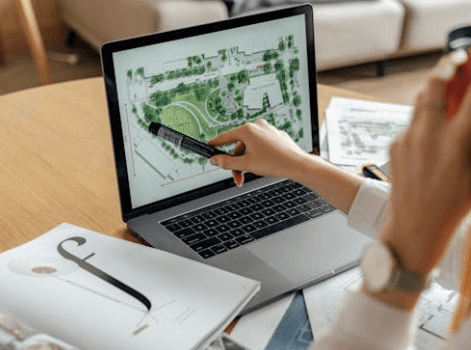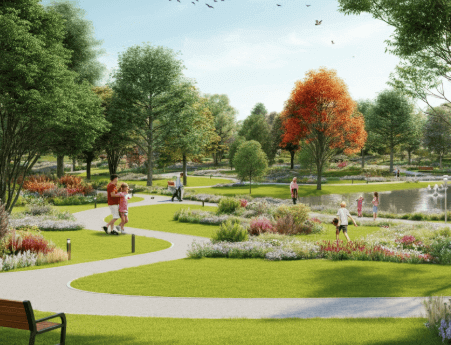Land use planning and future developments play a critical role in shaping the value and potential of properties in specific areas. Did you know that strategic land use planning can increase property values by up to 10%? Understanding these dynamics is especially important for sellers looking to maximize their returns. Steve Daria and Joleigh, renowned real estate investors and experienced cash buyers of land, have built their reputations by leveraging such insights to close successful deals. Capitalizing on land use planning and future developments can help property owners identify growth opportunities and avoid potential risks. Whether you’re planning to sell land or simply want to stay updated on changes in your community, this guide provides the insights you need to make confident, informed decisions. Don’t leave money on the table! Book a free discussion today to explore how you can benefit from professional guidance and real-time insights into your area’s evolving market.
Key Points
- Understand the Basics: Land use planning determines how land in a specific area can be used for residential, commercial, or industrial purposes. By understanding these fundamentals, sellers can identify which category their property fits into and its potential impact on value.
- Stay Updated on Future Developments: Projects like new roads, schools, or housing developments can significantly impact property demand and prices. Understanding upcoming developments in the area helps you position your property to appeal to the ideal buyers.
- Recognize Zoning Regulations: Zoning rules dictate what can and cannot be done with a property. Sellers who understand these restrictions can better market their land to align with legal uses, increasing buyer confidence.
- Capitalize on Growth Trends: Areas with rising investments and population growth tend to experience property value increases. Selling at the right time, when future developments are announced, can mean a higher selling price.
- Work with Real Estate Experts: Experienced real estate professionals like Steve Daria and Joleigh are here to guide sellers with cash offers and expert strategic advice. By partnering with seasoned experts, you can ensure your property sale achieves its maximum value.
What is land use planning, and why is it important?
Land use planning is the process of organizing and determining how to utilize land in a manner that balances economic, social, and environmental needs.
It ensures areas are designated for different purposes, such as housing, businesses, recreation, or conservation, to create well-functioning and sustainable communities.
Understanding land use planning and future developments in the area is essential because they shape the growth of neighborhoods and cities, ensuring resources are used efficiently while protecting the environment.

For example, a well-planned area might include parks for recreation, schools for education, and shops for everyday needs, all within easy reach.
It also helps reduce congestion, supports local economies, and ensures areas are safe and livable.
Land use planning is particularly important for anticipating future demands, such as population growth or the emergence of new industries, to avoid issues like overcrowding or resource shortages.
By considering future needs, communities can make informed decisions today that yield long-term benefits.
The goal is to create a vibrant and balanced environment where people can live, work, and fully embrace the beauty of their surroundings.
Get Started: Get Your Cash Offer Below…
We are direct land buyers. There are no commissions or fees and no obligation whatsoever. Start below by sharing where your property is and where we can send your offer…
How do future developments affect property values?
Future developments have a significant impact on property values, often bringing opportunities for growth or challenges to consider.
When new projects, such as schools, highways, or shopping centers, are built, they tend to increase the demand for nearby homes and land, driving up property prices.
On the other hand, developments such as factories or large industrial areas can lower property appeal due to noise or traffic.
Land use planning and future developments work together to carefully manage these changes carefully, ensuring a balance between progress and community needs.
Well-planned developments can create better infrastructure and amenities, making an area more desirable for living or investing.
For instance, the addition of public transit nearby can make properties more accessible and valuable.
However, excessive development without proper planning can strain resources, such as roads or utilities, leading to potential drawbacks.
Understanding future developments helps property owners and buyers make informed decisions about the value and potential of their investments.
How do zoning laws influence land use planning?
- Define How Land is Used: Zoning laws decide the purpose of land, such as residential, commercial, industrial, or agricultural. By doing this, they help organize communities to grow in a planned and efficient way, ensuring that land is used effectively.
- Separate Conflicting Activities: Zoning laws keep conflicting land uses apart, like separating factories from quiet neighborhoods. This means residents are less likely to encounter issues such as loud noise, heavy traffic, or pollution near their homes.
- Maintain Safety Standards: Zoning laws help protect people by controlling how close hazardous activities, like chemical plants, can be to areas where people live or work. This safeguards public health and promotes safe, livable communities.
- Support Local Economies: By designating spaces for businesses and shops, zoning laws drive economic growth. They ensure that commercial areas create job opportunities and services without harming nearby residential spaces.
- Preserve Valuable Resources: Zoning rules help protect parks, cultural sites, and vital infrastructure, such as schools. This preserves what makes a community special while ensuring future generations can enjoy these resources.

How can I identify potential risks in planned developments?
Identifying potential risks in planned developments requires careful evaluation of multiple factors.
Start by understanding how the project fits within land use planning and future developments to ensure it aligns with both community goals and regulations.
Environmental impacts are a common risk; check if the development affects local ecosystems, water supply, or air quality.
Infrastructure strain is another consideration, such as whether nearby roads, schools, or utilities can handle the increased demand.
Look into potential economic risks, like whether the project disrupts existing businesses or fails to attract expected investments.
Assess the community’s feedback, as local concerns often point to issues such as noise, traffic, or cultural preservation.
Regulatory challenges, such as obtaining permits or complying with zoning regulations, could delay or complicate the project.
Lastly, stay informed by reviewing public records, attending government meetings, and consulting expert reports to uncover risks that may not be immediately visible.
By gathering this information, you can minimize uncertainties and make informed decisions.
How can I find information about future developments in my area?
- Check Your Local Government’s Website: Most city or county websites provide detailed information about ongoing and upcoming projects. You can often find sections dedicated to updates on land use planning and future developments in your area.
- Attend City Council or Planning Meetings: Attending local government meetings is an excellent way to stay informed about upcoming projects. These sessions provide useful updates on upcoming developments and give you the chance to ask questions or share concerns directly.
- Talk to Your City’s Planning Department: Municipal planning departments can provide detailed maps, reports, and project timelines. They play a key role in land use planning and can help you understand how new developments will shape your community.
- Join Local Community Groups or Forums: Online communities and local forums often discuss future developments and share valuable updates. These groups can keep you informed about projects that may not always be covered in official announcements.
- Review Public Notices and News Reports: Be aware of notices regarding zoning changes, permit applications, or environmental assessments. These notices are part of the land use planning process and can give you early information about future developments nearby.
What steps should I take to participate in local land use planning discussions?
To participate in local land use planning discussions, start by learning about meetings, workshops, and public hearings in your area.
Check your city or town’s official website for schedules and announcements to stay informed about opportunities to get involved.
These events are a key way to share your input and gain a better understanding of how decisions are made.
Reviewing materials such as zoning maps and development proposals can help you deepen your understanding of land use planning and future developments in the area.
Get involved by joining local community groups or engaging in online forums where residents collaborate, share updates, and discuss concerns about planning projects.
For further details or inquiries about upcoming changes, consider reaching out to your city’s planning department.
They are available to offer further details and address any questions you might have.
Subscribing to city newsletters or alerts ensures that you stay informed on critical updates.
Building strong connections with local officials and participating actively helps make sure your voice is heard.
Take the first step by attending an upcoming city council meeting or planning workshop today.
Your input is essential for creating well-balanced, thoughtful developments that benefit the entire community.
**NOTICE: Please note that the content presented in this post is intended solely for informational and educational purposes. It should not be construed as legal or financial advice or relied upon as a replacement for consultation with a qualified attorney or CPA. For specific guidance on legal or financial matters, readers are encouraged to seek professional assistance from an attorney, CPA, or other appropriate professional regarding the subject matter.
